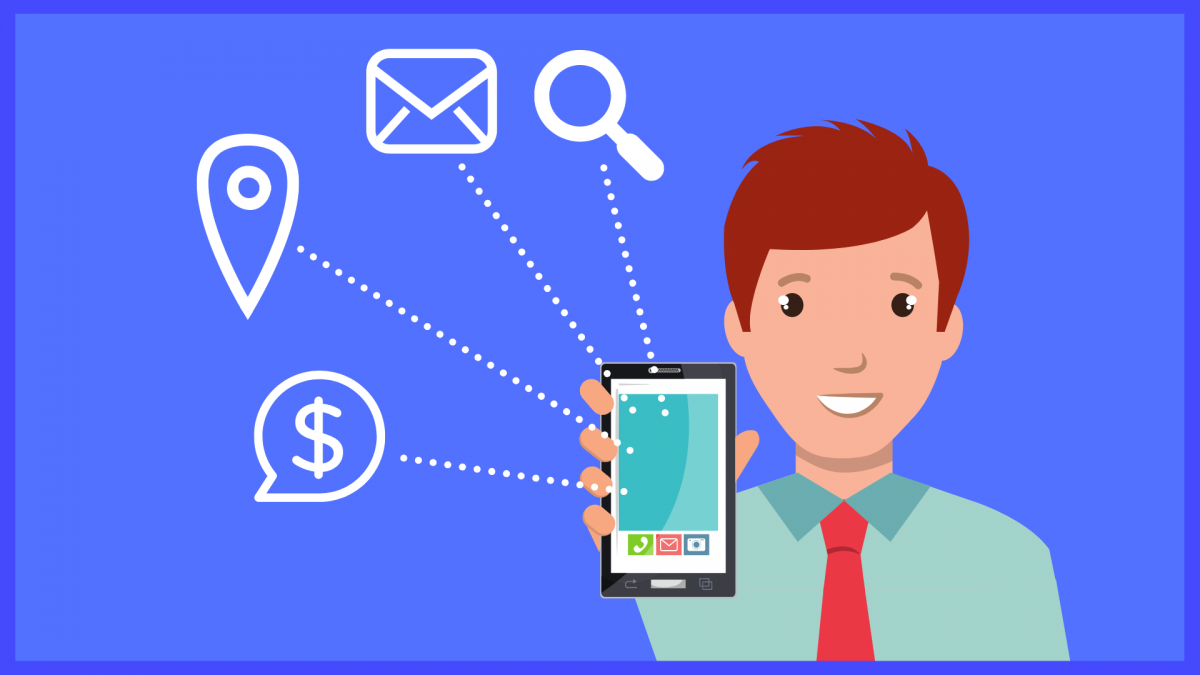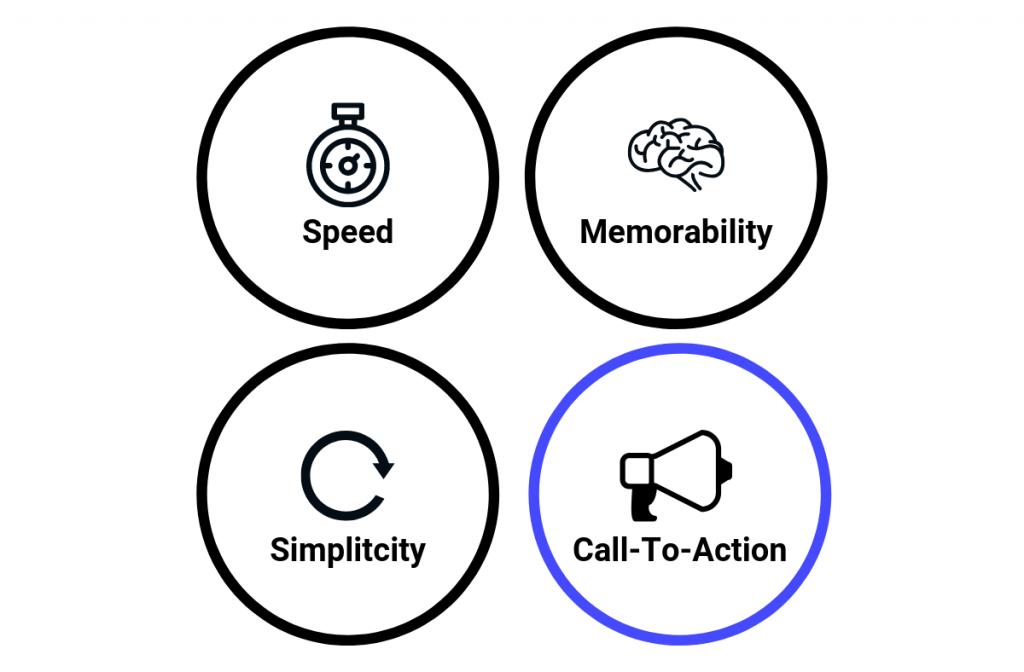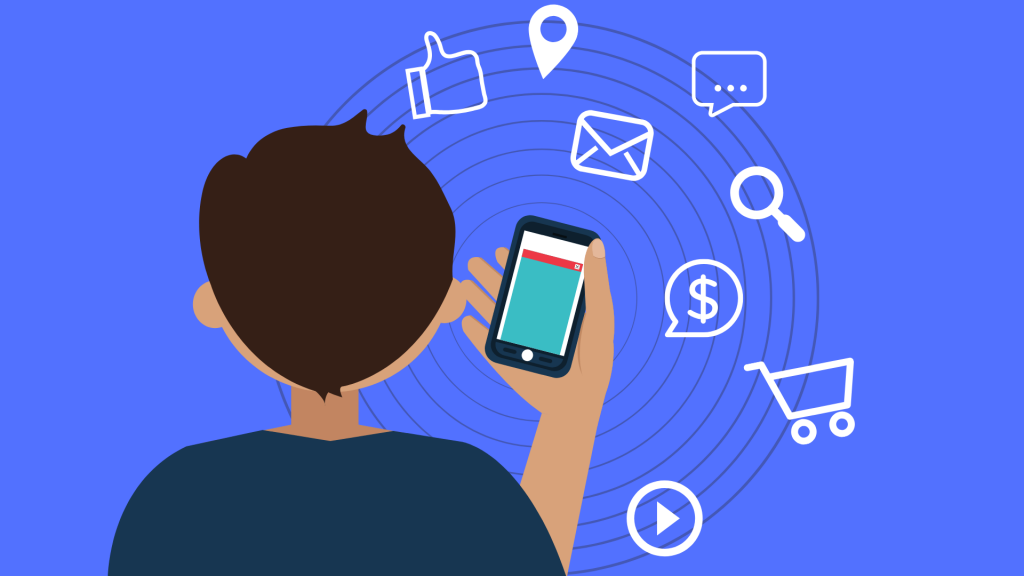Mobile Marketing: The Ultimate Guide to Become an Expert
PUBLISHED
17 February, 2019

Content Manager

Before doing research for this article I wanted to tell you that mobile marketing is the future.
But actually, the world becomes more mobile-centric every day–it’s the present. If you haven’t thought about it yet, you’re already behind.
But don’t worry! It’s not too late to start now!
If you work on a mobile app, mobile marketing can drive your traffic up by high margins. It will probably be one of your main marketing tools.
This guide will show you in systematic, reliable and proven ways how to increase app installs via mobile marketing.
To prevent uninstalls after successful marketing, optimize your app first, ideally with our solution UXCam.
What is mobile marketing?
Before we can talk about different mobile marketing strategies, we need to answer the question of what mobile marketing is.
It is as simple as the word let you guess: Mobile marketing is every kind of marketing that appears on mobile devices.
Mobile marketing is a marketing strategy which reaches the target audience on their smartphones, tablets or other mobile devices via SMS, website, email, social media or apps. It’s typically a component of a multi-channel marketing campaign.
Why is mobile marketing important?
You need a mobile marketing strategy for the same reasons you have started with a desktop marketing strategy or an offline marketing strategy in the past.
Users spend nearly 40% of the total internet usage time on mobile devices. The average American checks their smartphones 46 times a day. Everything available via desktop computers is now available via smartphones too. From opening an email over spending time on social media to reading websites, or buying products.
Effective mobile marketing means to stay in time and design content that meets the changing requirements of your target groups.
Core Concepts of Mobile Marketing

Before I explain the different strategies, there are core concepts you should keep in mind while designing your own mobile marketing campaign. These concepts will help you make your mobile marketing effective.
Speed
A quick view on your social media account, a short message from your friends, a chat with your friends via a messenger between the two meetings. What you do on a smartphone happens in a short time period.
Your user hasn’t much time.
Keep it short and easy.
Simplicity
Because of the short time frame, deliver your message as simply as possible. Don’t give your users time to think.
Be direct.
Memorability
Your users get a lot of messages every day and every minute. It is likely that he won’t recognize or remember your app:
Being memorable does not exclude being simple.
Be creative.
Call to action
Like every other type of marketing, a mobile marketing strategy includes a call to action. A short call, information or sentence that leads your users to the next step.
Invite your users to the next step.
You have to find a balance between creativity and simplicity.
Goals of a mobile marketing strategy
#1 Reach
What is the first thing you do after waking up? Curse the alarm clock?
61% of users check their smartphones within 5 minutes after waking up, 80% within the first 30 minutes.
Just think about how often users look at their smartphones during the rest of the day.
Via mobile marketing, you can reach your users anywhere and anytime – as long as you have set up a mobile marketing strategy.
#2 Mobile e-commerce
Consumers don’t just buy offline or via desktops anymore. The number of purchases made on mobile devices is growing, and in 2018 users made almost 40% of the e-commerce purchases during the holiday season on a mobile device. People won’t change back to offline shopping for the rest of the year.
#3 Cost-effectivity
Mobile marketing can be very cost effective compared to other types of marketing like ads or tv spots. If you want to start a low budget mobile marketing strategy, start by optimizing your mobile app for conversions. Set up a newsletter campaign to reach out to your target group.
Even if you don’t set up a super fancy and expensive mobile marketing campaign you can reach your target audience and use their benefits.
#4 Awareness
Mobile phone users use their smartphone for personal stuff and for business. They have their smartphones most of the time within reach.
By setting up a mobile marketing strategy you reach your users anytime even if they don’t actively search for you. With strategies like social media ads, your ad is in between your friends and family.
Mobile marketing strategies
There are a lot of mobile marketing strategies. There is no general best strategy, the best strategy for you depends on your target group, budget, and industry.

Mobile-Optimized Website
Sounds obvious, but it is highly important. 51% of online customers are more likely to make a purchase from a mobile-optimized website – but just 4.8% of brands have one. 40% of the customers would turn to a competitors website after an unsatisfactory experience with a mobile website. 57% of customers wouldn’t recommend a business with a not optimized mobile website.
Do I have to say more?
Obviously your mobile app should be optimized for conversions as well.
In-App Marketing
Smartphone users spend a lot of time using apps so it looks obvious to set up a marketing strategy which reaches out to app users. To start with this strategy you don’t have to advertise in your own app, you can implement your ad to existing apps.
Mobile Searches
Searches made on a mobile device are different from those made on a desktop. The users are in a rush and want to have quick information. Or they want to make a last minute purchase of what they need the next day. They don’t want to spend much time.
Setting up a search engine ad can help you bring your website to the top of the search engine results. But keep in mind that you won’t leave a great impression when your users find a not responsively designed website behind the top search result. Best practice: Immediately direct the user to your app on your website.
Social Media Ads
Sure, social media is available on desktop too. But you can reach a lot of people with social media ads. Many networks implement ads between the users’ newsfeed. By setting up a campaign like this your brand is in between their family and friends. Moreover, you can reach your customers on mobile as well as on other devices.
Keep in mind: The users get a lot of information on these channels, being memorable is essential here.
Email Marketing
With all the new and fancy techniques, email marketing sounds a bit boring, but it isn’t. Marketers still rank it as the most effective marketing channel. Most people have an email account and 91% of the users check their email account daily. 66% of the users have made a purchase because of a received email.
This strategy allows you to reach many people who will see your offer quite fast and are likely to make a purchase. Moreover, if people subscribe to your email newsletter you can be sure that you reach people who are actually interested in your company and your product. You don’t have to hope to reach out to the right group of people, they’ve decided to get your offers and contents.
Location-based marketing
Location-based marketing allows you to connect to users based on their location. This strategy uses the users’ location to make sure that the offered advertisement is relevant to them. Moreover, geolocation gives users the chance to share content based on space or location.
People tend to be more interested in things which are close to them.
For example, you can advertise your mobile app with a picture of San Fransisco if the user is currently staying in the city.
Coupons
Who doesn’t want to save money? Coupons have been around forever but the internet has revolutionized this concept completely.
The users don’t have to carry them in their pocket anymore. They don’t have to look through several coupons to find the one they need.
You have the chance to send personalized coupons to your customers, based on past purchases, the users’ location or other information.
2D Barcodes
2D Barcodes are a combination of the touchable reality and the world wide web. These barcodes can save and deliver a lot of information.
This kind of marketing can be used to give your offline customers the chance to get a lot more information about your mobile app by scanning a barcode.
Final thoughts about mobile marketing
Keep your eyes open. Not long ago “mobile marketing” was “a thing for the future”. When you now hear the word you probably think about smartphones and tablets because nearly everybody has a minimum of one of these mobile devices. But there is a lot more. Nowadays, 21% of US adults own a wearable tech. “Smart home” is a growing market.
The variety of mobile devices and mobile marketing strategies are growing.
Being quick doesn’t just mean setting up a quick and easy to understand the ad. A quick response to messages from customers, quick reactions to changing conditions and continuity are just as important.
The key to making the best out of your mobile marketing strategy is to find the right balance between speed, simplicity, creativity, and memorability.
Make sure that you understand your mobile app user before you deliver any marketing message.
Now go out and reach your customers!
Related Articles:
AUTHOR

Annemarie Bufe
Content Manager
Passionate hobby dancer. Working at UXCam.
What’s UXCam?
Related articles
Product best practices
App Onboarding Guide: Top 10 Onboarding Flow Examples 2025
Take a look at 10 examples of mobile apps that get user onboarding flows right. Get inspired by proven app onboarding approaches and improve your...

Jonas Kurzweg
Growth Lead
Product best practices
Como Encontrar Usuários Ativos De Um Aplicativo
Descubra estratégias comprovadas para identificar e engajar usuários ativos do seu app, aumentar a retenção, impulsionar o crescimento e maximizar o sucesso do seu...

Tope Longe
Growth Marketing Manager
Product best practices
Product Performance Analysis - A 7-Step Playbook with UXCam
Learn how to use product performance analysis to improve UX, boost retention, and drive growth with actionable steps and...

Tope Longe
Growth Marketing Manager
